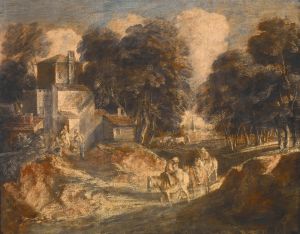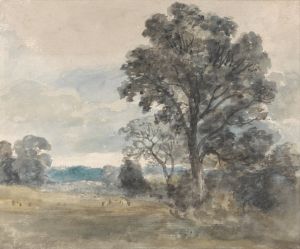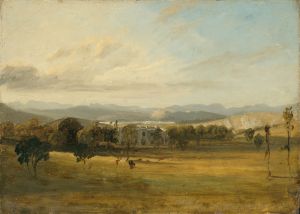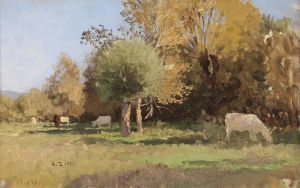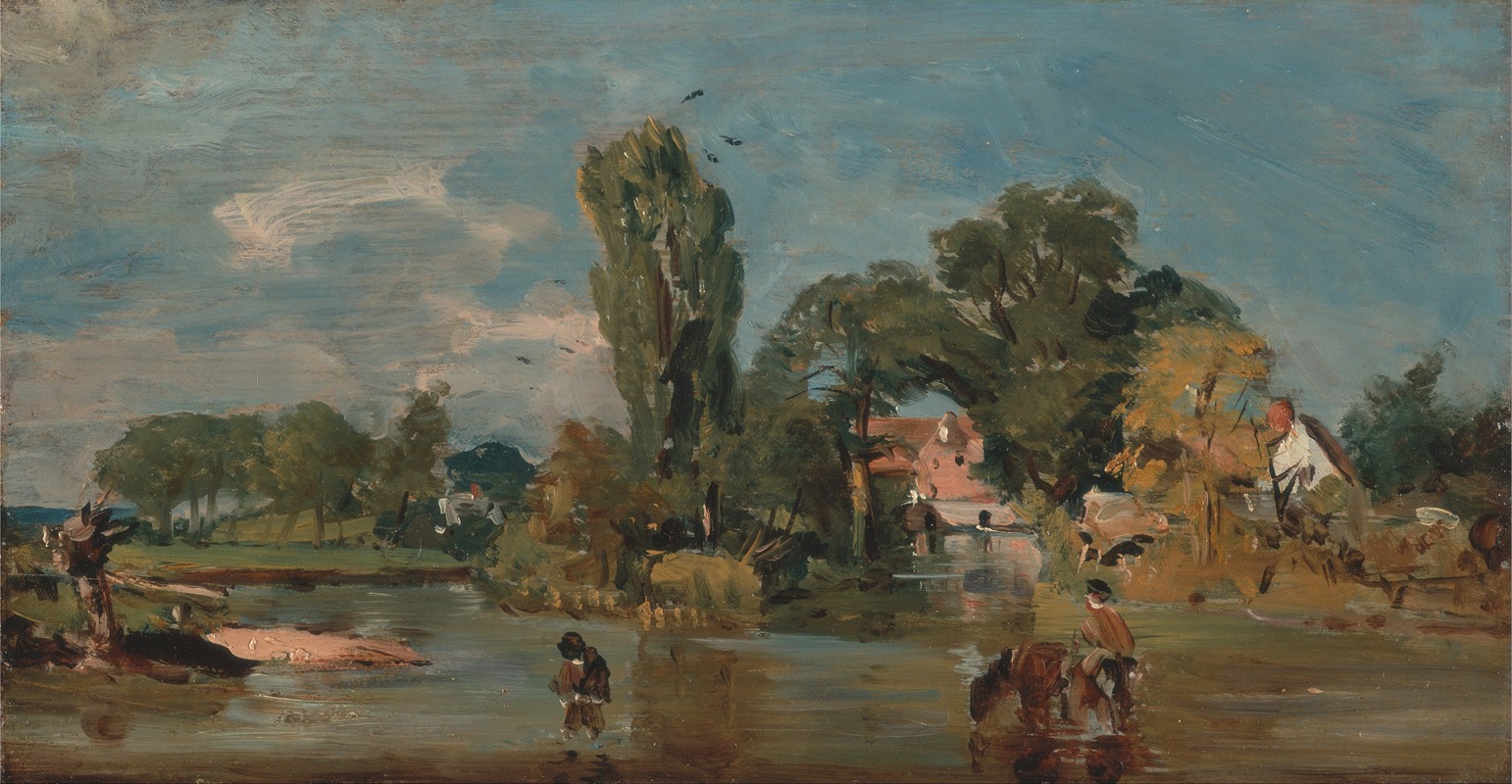
Flatford Mill
A hand-painted replica of John Constable’s masterpiece Flatford Mill, meticulously crafted by professional artists to capture the true essence of the original. Each piece is created with museum-quality canvas and rare mineral pigments, carefully painted by experienced artists with delicate brushstrokes and rich, layered colors to perfectly recreate the texture of the original artwork. Unlike machine-printed reproductions, this hand-painted version brings the painting to life, infused with the artist’s emotions and skill in every stroke. Whether for personal collection or home decoration, it instantly elevates the artistic atmosphere of any space.
Flatford Mill is an oil painting by the English Romantic artist John Constable, completed in 1816. The work depicts Flatford Mill, a watermill located on the River Stour in Suffolk, England. This mill was owned and operated by Constable's father, Golding Constable, and the painting reflects the artist's deep connection to the rural landscapes of his childhood.
The painting is part of Constable's series of works that focus on the Stour Valley, an area that came to be known as "Constable Country" due to his frequent depictions of its scenery. Flatford Mill is notable for its detailed and naturalistic portrayal of the English countryside, showcasing Constable's innovative approach to landscape painting. He sought to capture the transient effects of light and atmosphere, which was a departure from the more idealized landscapes that were common in earlier art.
Flatford Mill was painted shortly after Constable's marriage to Maria Bicknell in 1816, a period of personal happiness for the artist. The work is often associated with his desire to convey the beauty and tranquility of rural life. The painting features the mill itself, along with the surrounding trees, water, and sky, rendered with meticulous attention to detail. Constable's use of color and texture creates a sense of immediacy and realism, emphasizing the natural beauty of the scene.
The painting is also significant for its historical context. During the early 19th century, England was undergoing rapid industrialization, and Constable's works are often seen as a celebration of the traditional rural way of life that was increasingly under threat. Flatford Mill, like many of Constable's landscapes, reflects his belief in the importance of nature and its role in human well-being.
Flatford Mill is currently housed in a public collection, though its specific location may vary depending on exhibitions and loans. The painting remains one of Constable's most admired works and is frequently studied for its artistic and historical significance.







